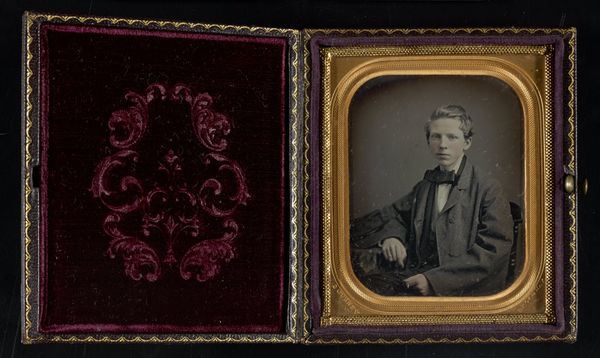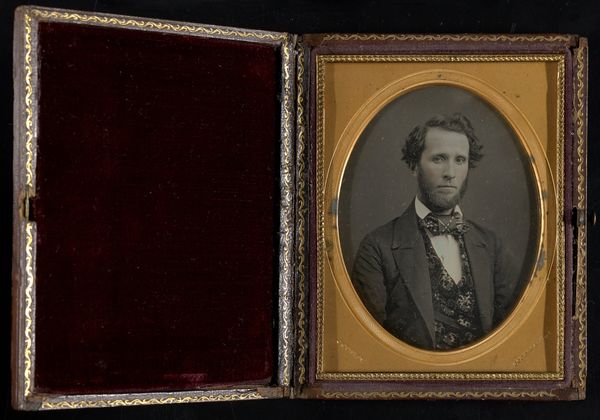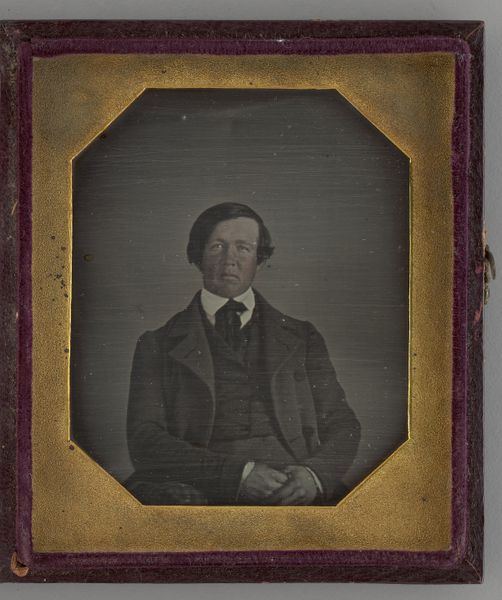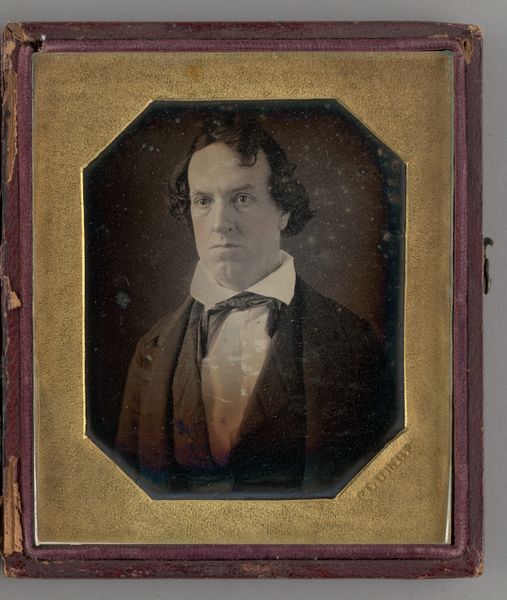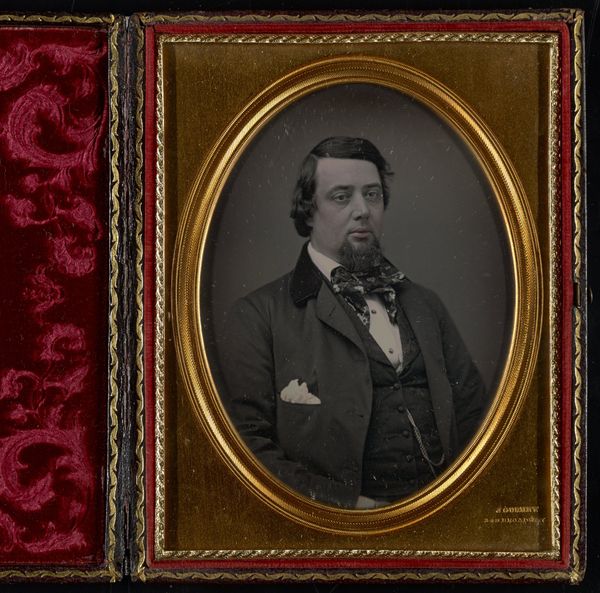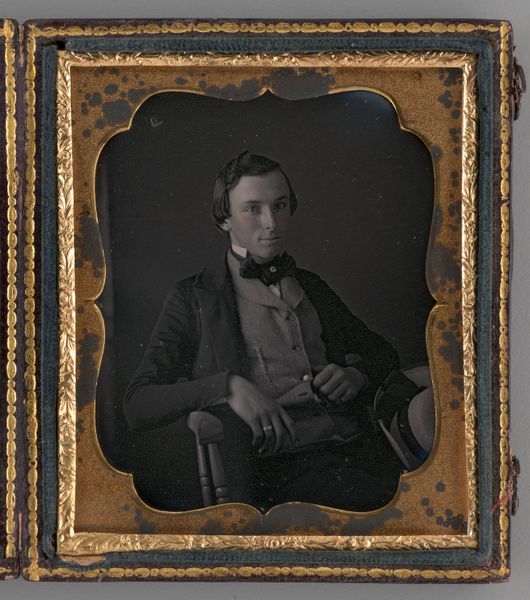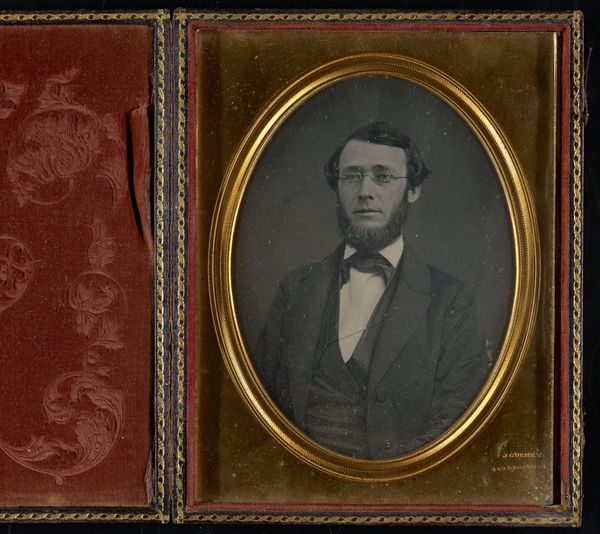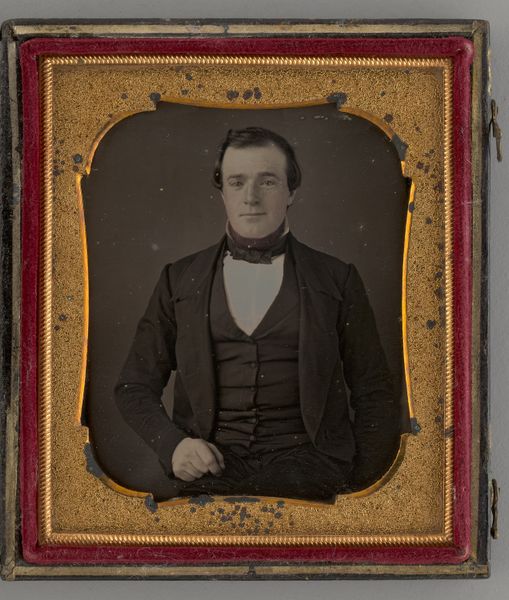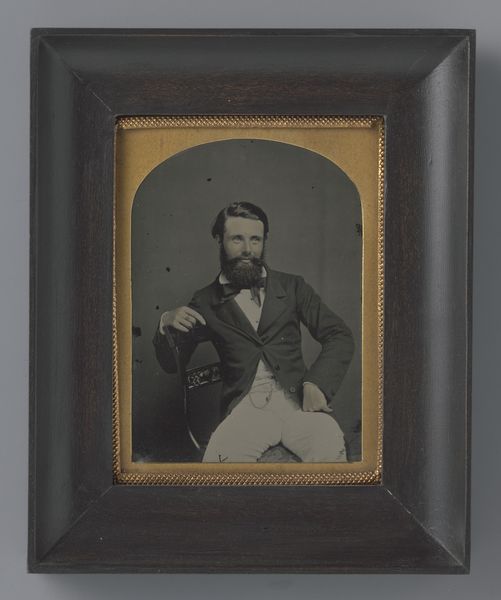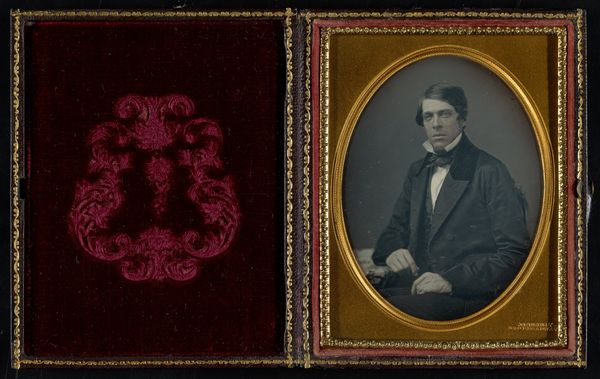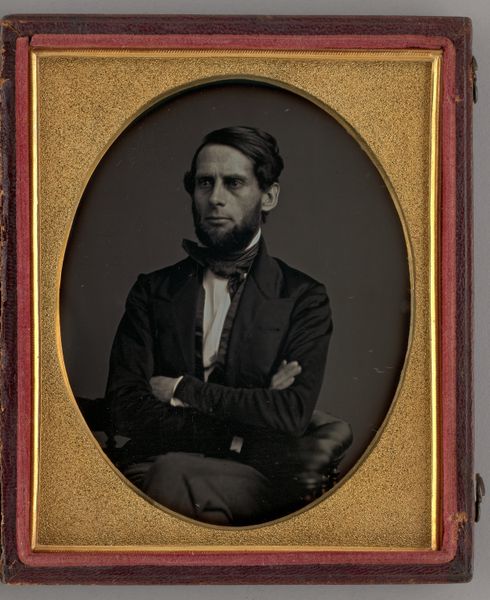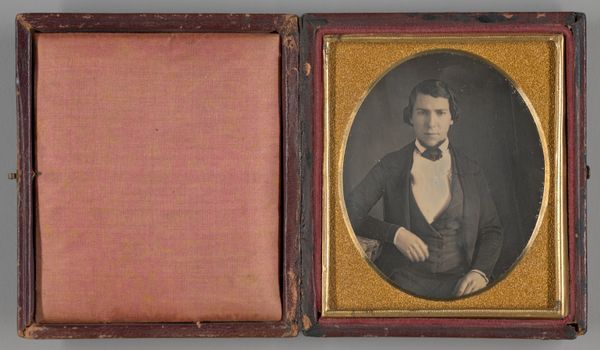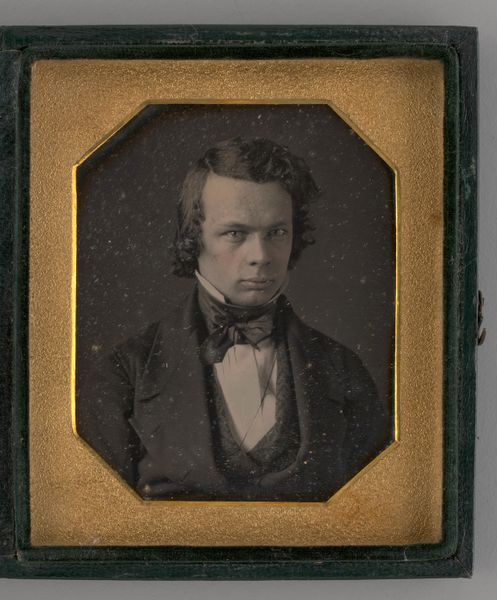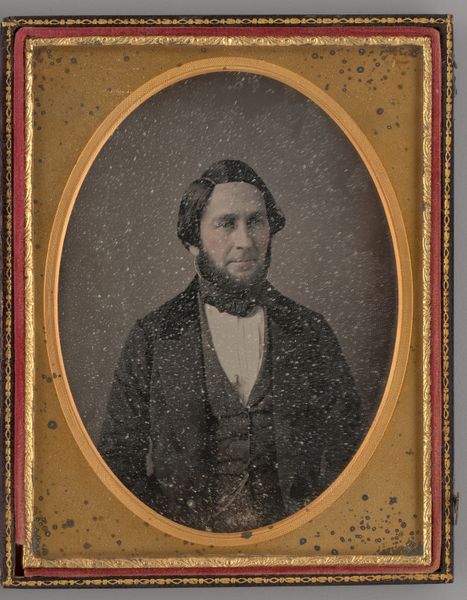![Untitled [bust portrait of a gentleman] by Jeremiah Gurney](/_next/image?url=https%3A%2F%2Fd2w8kbdekdi1gv.cloudfront.net%2FeyJidWNrZXQiOiAiYXJ0ZXJhLWltYWdlcy1idWNrZXQiLCAia2V5IjogImFydHdvcmtzLzcwYzcyNDA5LTRjNDctNDJlYS1iZTk3LWI3ZTY3NmFmZGRlYy83MGM3MjQwOS00YzQ3LTQyZWEtYmU5Ny1iN2U2NzZhZmRkZWNfZnVsbC5qcGciLCAiZWRpdHMiOiB7InJlc2l6ZSI6IHsid2lkdGgiOiAxOTIwLCAiaGVpZ2h0IjogMTkyMCwgImZpdCI6ICJpbnNpZGUifX19&w=3840&q=75)
Untitled [bust portrait of a gentleman] c. 1844 - 1852
0:00
0:00
daguerreotype, photography
#
portrait
#
daguerreotype
#
photography
#
historical fashion
#
romanticism
#
united-states
#
genre-painting
#
history-painting
Dimensions: 5 1/2 x 4 1/4 in. (13.97 x 10.8 cm) (image)5 15/16 x 4 11/16 x 3/4 in. (15.08 x 11.91 x 1.91 cm) (mount)
Copyright: Public Domain
Jeremiah Gurney made this portrait of an unknown gentleman using the daguerreotype process, a very early form of photography. This technology emerged in France in 1839 and quickly spread to the United States, where Gurney established a prominent photography studio in New York City. The daguerreotype, with its sharp detail and metallic surface, democratized portraiture. For the first time, middle-class individuals could afford to have their likeness captured, previously a privilege of the wealthy who could commission painted portraits. Notice how the sitter is dressed in a dark suit and tie, a signifier of middle-class status in the United States during the mid-19th century. Understanding the history of photography and its institutions, such as Gurney's studio, is crucial for interpreting these images. By examining census records, business directories, and period newspapers, we can better understand the social and economic context in which this portrait was created and consumed. This helps us appreciate the complex relationship between art, technology, and social change.
Comments
No comments
Be the first to comment and join the conversation on the ultimate creative platform.
